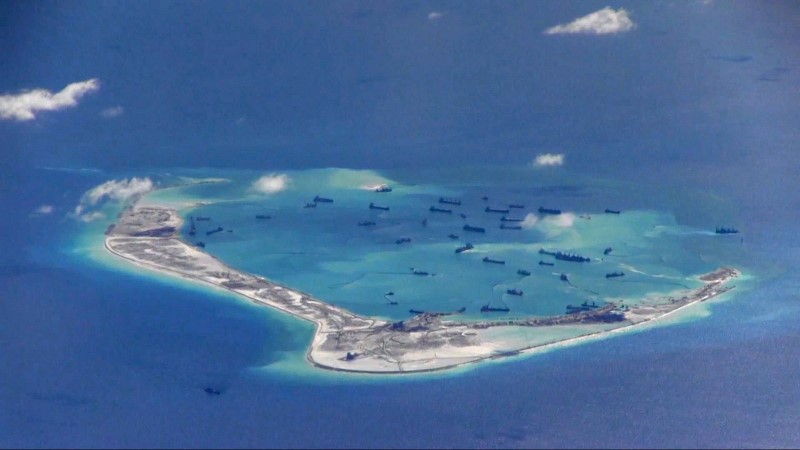BEIJING (Reuters) - China's air force sent bombers and fighter jets on "combat patrols" near contested islands in the South China Sea, in a move a senior colonel said was part of an effort to normalise such drills and respond to security threats.
The exercises come at a time of heightened tension in the disputed waters after an arbitration court in The Hague ruled last month that China did not have historic rights to the South China Sea.
The air force sent several H-6 bombers and Su-30 fighter jets to inspect the airspace around the Spratly Islands and Scarborough Shoal, Senior Colonel Shen Jinke of the People's Liberation Army (PLA) Air Force said, according to state news agency Xinhua.
The patrols included surveillance and refuelling aircraft, Xinhua said, although it did not say when they occurred.
"The Air Force is organising normalised South China Sea combat patrols, practising tactics ... increasing response capabilities to all kinds of security threats and safeguarding national sovereignty, security and maritime interests," Shen said.
China has refused to recognise the ruling by an arbitration court in The Hague that invalidated its vast territorial claims in the South China Sea and did not take part in the proceedings brought by the Philippines.
A dispute over the shoal, 124 nautical miles northwest of the Philippines mainland, was one of Manila's main reasons for bringing international legal action against China in 2013.
Beijing has reacted angrily to calls by Western countries and Japan for the decision to be adhered to and has released pictures of aircraft flying over the shoal since the ruling.
China has repeatedly blamed the United States for stoking tension through its military patrols in the South China Sea, a strategic waterway through which more than $5 trillion of trade moves annually.
China, Brunei, Malaysia, the Philippines, Taiwan and Vietnam all have rival claims in the South China Sea.

The United States has conducted freedom of navigation patrols close to Chinese-held islands, to Beijing's anger, while China has been bolstering its military presence there.